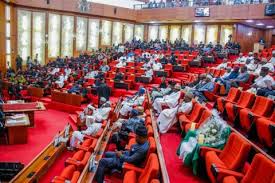
Nigerian workers on Wednesday joined their counterparts in other parts of the world to mark the 2024 International Labour Day, also known as May Day or Workers’ Day.
The May Day, an annual ritual celebrated on May 1st of every year, honours the contributions and feats of workers worldwide as well as the vital roles of workers in building resilient societies and productive economies.
This year’s Workers’ Day is the first under President Bola Tinubu who was sworn in as the leader of Africa’s most populous nation on May 29, 2023.
Already, the Federal Government declared Wednesday, May 1st, 2024 as a public holiday to mark this year’s Workers’ Day event in Nigeria.
In a statement, Nigeria’s Minister of Interior Olubunmi Tunji-Ojo said, “In alignment with this year’s theme, which focuses on ensuring safety and health at work in a changing climate, I wish to state that the Federal Government remains steadfast in its resolve to prioritise the safety and well-being of all citizens,” the minister said.
“Let me reaffirm Mr. President’s commitment to providing a conducive environment for work, where every worker can thrive and contribute meaningfully to national development.”
President Tinubu introduced some sweeping reforms including petrol subsidy removal and unification of the foreign exchange windows when he took over last May, two decisions that have been flayed by labour groups, the Nigerian Labour Congress (NUC) and the Trade Union Congress (TUC).
The removal of petrol subsidy saw the price per litre of the premium commodity jumping from around N184 to about N600. The move aimed at the deregulation of the oil sector has inflicted untold hardship on Nigerians with the prices of basic commodities going through the roof.
High-cost-of-living protests subsequently broke out across the country, with labour unions demanding new minimum wage for workers to cope with the inflationary pressure. The government has continued to placate citizens with the introduction of palliatives — as interim interventions — and encouraging them to endure the pain of the moment.





